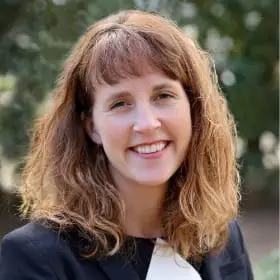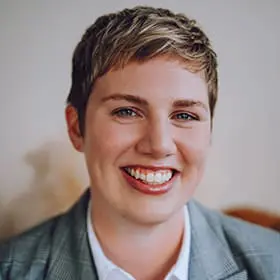
Insights
December 6, 2022
Do You Really Need To Retire?
In Retirement, Wealth Strategy

When I sat down to write this article, I was supposed to create a retirement checklist but instead I kept thinking about Greg…
I met Greg this summer while golfing in Maine with my brother. In those four hours, I gathered that he had a wicked New England accent, a very low handicap, was in his early 50’s, paid $250 to play golf on a Tuesday with a group of hacks, and didn’t seem frustrated. Around the 10th hole we learned Greg had been a for-hire CFO for various private equity-backed companies and was burnt out by the 12 to 14-hour workdays and stretch goals. He was on “a break.” He didn’t say retirement.
I wanted him to enjoy his day on the course, so I didn’t pester him with all the questions a financial advisor would ask a client to prepare for what has historically been called “early retirement,” now known as the “great resignation.”
If I knew Greg better, I would have asked:
- Have you estimated the cost of out-of-pocket health care before you reach Medicare age (65)?
- Do you have enough assets saved to realistically meet your current standard of living (e.g., Tuesday golf at 250 bucks a pop on a whim) until you are 85?
- And new this year: have you considered inflation in your answers for questions 1 and 2?
There are a truckload of other questions financial advisors want answered before we can say you’re safe to retire. However, in my experience those three are the biggies if you want to retire before the age of 65. And let’s face it, since the COVID shutdown, people over the age of 54 who have retired early are likely not returning to the workforce. So, this article is for you, Greg and Sarah.
Sarah is a friend of mine who moved to Seattle around the same time I did – almost a decade ago. Sarah works at Amazon and has experienced tremendous portfolio growth thanks to the equity awards of Amazon stocks. She has wisely diversified from the stock over the years, reinvested in a broader portfolio, and bought a house.
Sarah maintains a quality of life that includes dinners out, gym memberships, and extended weekend vacations. Sarah enjoys life’s amenities but does not live outside her means and saves a good portion of her overall compensation. Sarah is 45 years old and, like Greg, is thinking of joining the great resignation and going to massage school in Costa Rica. The program costs are modest and she’d be there for six months. Sarah is a close friend, so I can ask her the pesky questions I couldn’t ask Greg. I know Sarah is a little shaky on her answers to questions 1 through 3. I know she wants to continue to order sushi whenever she damn well pleases.
Does this mean Greg and Sarah just need to suck it up and keep plodding along in their respective positions and stop explore early retirement? Is this the part of the article where I unleash the secret product that will guarantee your retirement in this current inflationary environment? I would say no to both: they don’t have to plod along, and there is no secret product [pro tip: there never is]. I think this historic time of office shutdowns, medical innovations, and personal introspection has reminded us of the amazing creativity that humans possess. We have all had to pivot and make changes, for better or for worse. We are exhausted and have some PTSD, but as we come out of the 2020-2021 paradigm, we should not leave our creativity and flexibility behind.
I became a team manager during that 2020-2021 period (here’s to promotion when the world is falling apart!). And, other than the useful and humbling things I’ve learned about myself, I learned about the value of team members. I could not successfully do what I do by myself and am extremely grateful for what my team brings to the table day-in and day-out. If one of them came to me and needed to pivot, like take six months off to go to massage school and return to working on our team and do massage, what would I say? In 2019, would I have considered that? Probably not. In 2022 am I considering that? It’s certainly worth a discussion with a team member who has institutional knowledge, good rapport with clients and teammates, and is efficient and effective.
This all begs the questions: can Sarah go to Amazon and ask for the same thing? Can Greg ask the private equity firm to scale back his hours? I work at a smaller, employee-owned firm and Sarah’s and Greg’s companies seem like they might have higher barriers to this kind of flexibility. But I would say, if you have one foot out the door anyway, why not ask? I have worked with so many successful businesspeople and, other than good old-fashion perseverance and tenacity, I have observed that a lot of their success comes from asking for things after they prove their value to a company. If you don’t ask, you don’t get. Before anyone marches into their boss’s virtual office to have this conversation, we do need to pause and observe that Amazon is in the midst of lay-offs and there is a potential recession looming next year. So let’s remember that another thing successful businesspeople do is make plans. Today might not be the day for that conversation, but this period of tumult will pass, and there will be new opportunities for conversations like this.
This finally brings me to what this article is about. For those Great Resignators under 65, do you really need to retire? Do you really want to? Or do you just want to do something different? Why do you have to wait to retire to travel, read all those books on your list, or become a yoga instructor? It’s possible you have already saved enough of a nest egg that can continue to grow for the next 10-15 years (assuming you don’t touch it until you’re 65). Can you get health care coverage, retirement savings, and employee matching until you’re 65 while living comfortably with less money? Can you continue to work, just differently, and start doing the things you’ve put on hold? Is it you or your job that’s preventing it from happening?
It’s kind of like a second marriage – you may break up with your current employer, but the problem was not “working,” it’s the relationship you had with your ex-employer. Humans like working and being productive. We created the Iron Man triathlon for what? Fun?! You’ve learned from your first marriage, and now you know your limits and how to effectively communicate them. And just like a second marriage, there is an employer out there looking for someone like you! You just might need to get a little creative, like I am with this second marriage metaphor.
So, if you’re under 65 and thinking about retirement, go back to questions 1-3. If you aren’t sure, we have financial tools to help you answer those questions. But I’m gonna tell you this – humans are living longer, and you likely do NOT want to go back to eating Ramen noodles, let alone give up your golf and sushi. So, if the numbers don’t add up to early retirement, let’s get creative and find a way for you to work and live your life fully before retirement.
Insights Tags
Related Articles

June 27, 2025
Diversified Estate Planning for LGBTQ+ Families


June 20, 2025
Incorporating a “Die with Zero” Philosophy into Your Long-Term Financial Plan



June 1, 2025
Maximizing Your Google Benefits: A Strategic Guide for 2025

